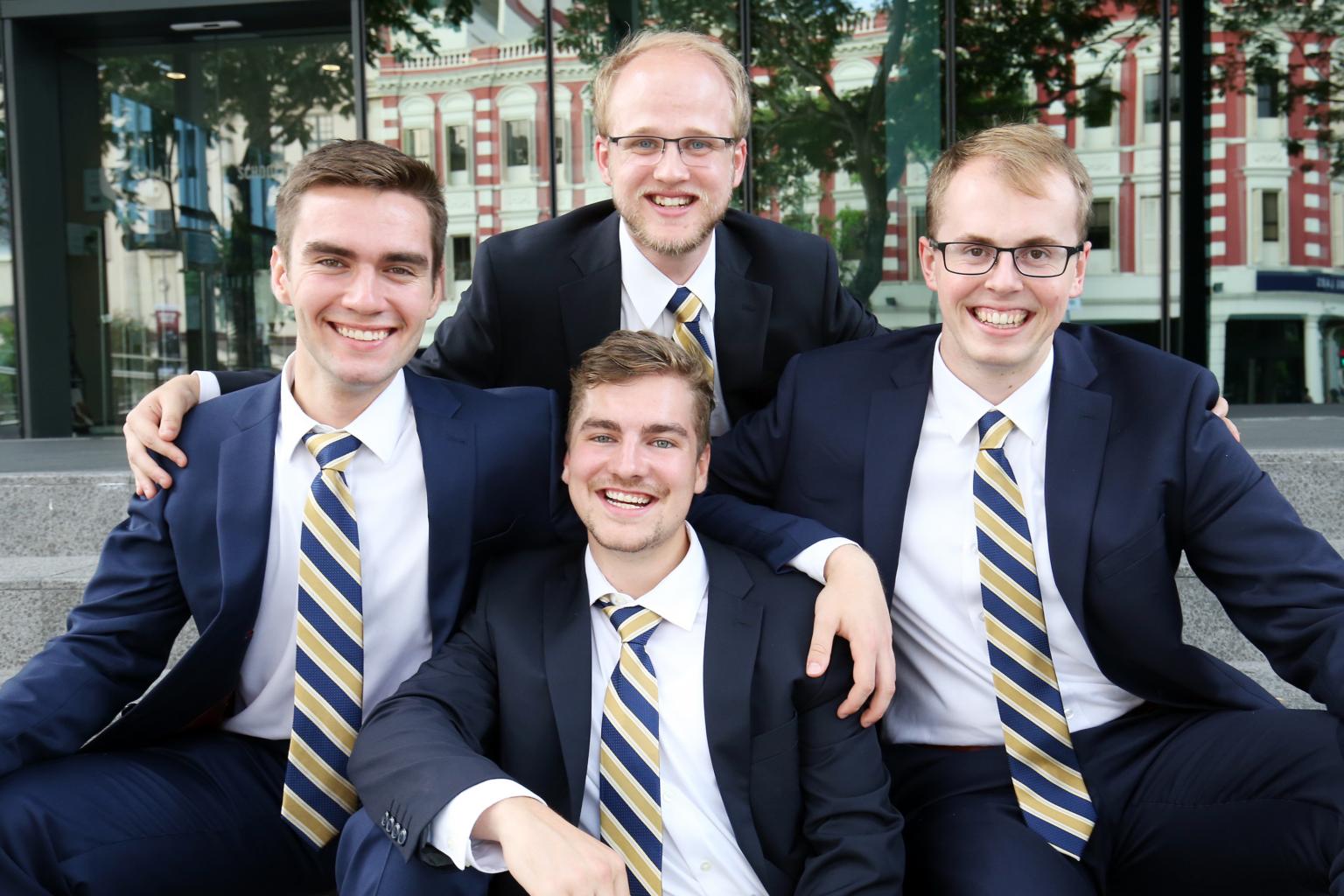Canada's Queen's University wins top prize at Lee Kuan Yew Global Business Plan Competition
Sign up now: Get ST's newsletters delivered to your inbox

The team from Queen's University of Canada, comprising Mr Christian Baldwin (centre, nearest camera) and (from left) Mr Malcolm Eade, 22, Mr Tyler Whitney, 22 and Mr Ryan Picard, 23.
PHOTO: LIANHE ZAOBAO
Daniel Ong
Follow topic:
SINGAPORE - A silicon chip which can help detect even trace amounts of melamine in milk power helped a team from Canada win the top prize of $100,000 in the Lee Kuan Yew Global Business Plan Competition on Thursday (Sept 14).
Queen's University beat five other finalists to win the top prize at an award ceremony at Fairmont Hotel.
The winning team, SpectraPlasmonics, is made up of Mr Malcolm Eade, 22, Mr Tyler Whitney, 22, Mr Ryan Picard, 23, Mr Christian Baldwin, 21, and Mr Yusuf Ahmed, 21, who was not present.
"With this award we will be able to put a lot more focus on product development," said Mr Whitney.
He added that the team plans to continue to develop the product and bring the technology to the market.
Their project involves the use of a metal-coated silicon chip to aid ultra-sensitive chemical detection. Lab samples are placed on the chip, which is implanted on a specimen slide and examined through a spectrometer. The chip is able to enhance detection signals by at least a million times, thus producing more comprehensive test results and reducing the need for complex lab tests that are both costly and time-consuming.
The chip is also able to perform detailed drug analysis in forensic labs, and was invented by researchers from the university's chemical engineering department. Team SpectraPlasmonics will be developing and selling it.
The competition's final six - which featured teams from the United States, Canada, Italy, China, Sweden and the United Kingdom - were selected from 550 submissions from over 300 universities in 68 countries.
The theme of this year's competition was "Smart City", and called for creative proposals from university, college and polytechnic students across the globe to address the challenges a smart city faces and seize opportunities for innovation.
The six grandfinalists, two from each of the categories of health, living and services, were selected from 36 finalists who were in Singapore during the competition week that started on Monday (Sept 11). As part of the final round, they took turns to present their ideas to a panel of seven judges at the Singapore Management University (SMU) School of Law on Thursday.
The judges included Professor Lui Pao Chuen, Advisor of National Research Foundation Singapore, as well as Michael Seibel, Chief Executive Officer of Y Combinator, a leading start-up incubator and accelerator in the United States.
The grand prize was sponsored by the competition's organiser, the Singapore Management University's Institute of Innovation and Entrepreneurship.
Another finalist, Elephant Chain from Zhejiang University in China, won the Smart Services Outstanding Award, a cash prize of $25,000.
Elephant Chain is a project that builds a platform for financial transactions to make them more affordable and less prone to fraud.
The Lee Kuan Yew Global Business Plan Competition is supported by Wilmar International Limited, with the Smart Nation Programme Office as its Knowledge Partner.
Correction note: This story has been edited for clarity.

